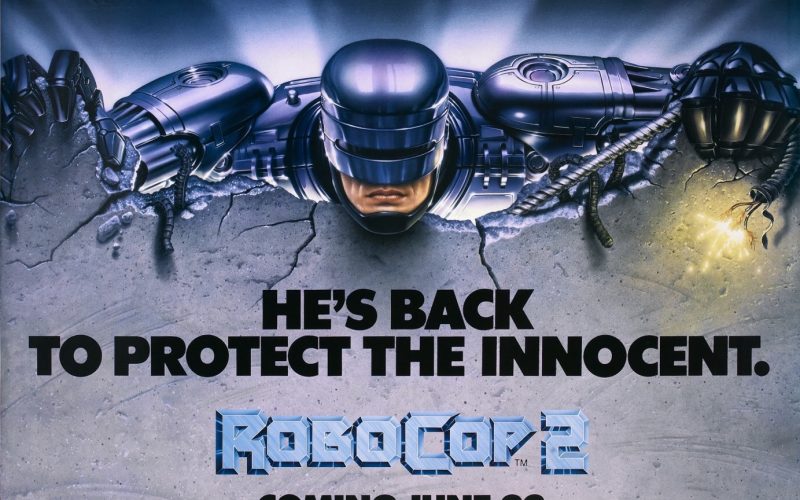As RoboCop turns 30, we look back at the ill-fated RoboCop 2 (1990).
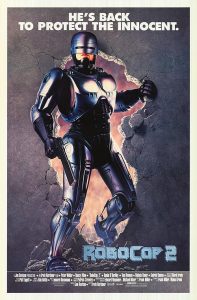 RoboCop 2 has a small but fervent fan base that I’ve become increasingly aware of in recent years and am somewhat perplexed by. In my humble opinion it’s very clear that as both a film and sequel to the outstanding original it simply fails to deliver, and was the beginning of the end for the RoboCop franchise, in terms of quality at least.
RoboCop 2 has a small but fervent fan base that I’ve become increasingly aware of in recent years and am somewhat perplexed by. In my humble opinion it’s very clear that as both a film and sequel to the outstanding original it simply fails to deliver, and was the beginning of the end for the RoboCop franchise, in terms of quality at least.
I have a strange relationship with RoboCop 2 insomuch as although it’s a film I have no great love for, I have nevertheless seen it innumerable times. Let me explain…
As any who have read my recent review of the original movie for Film ’89 will be aware, it’s my favourite film, and in early 1990 my anticipation for the sequel was fervent to say the least. The first full theatrical trailer (with Basil Poledouris’ score stolen from the original) remains to this day one of the most enticing trailers I’ve seen and makes the film look far better than the final product actually is. Alas, later that year (I had to wait for the home video release) I was very disappointed. Yet still I re-watched it over and over in some vain hope that it would get better the more I watched it. I really wanted it to but it didn’t.
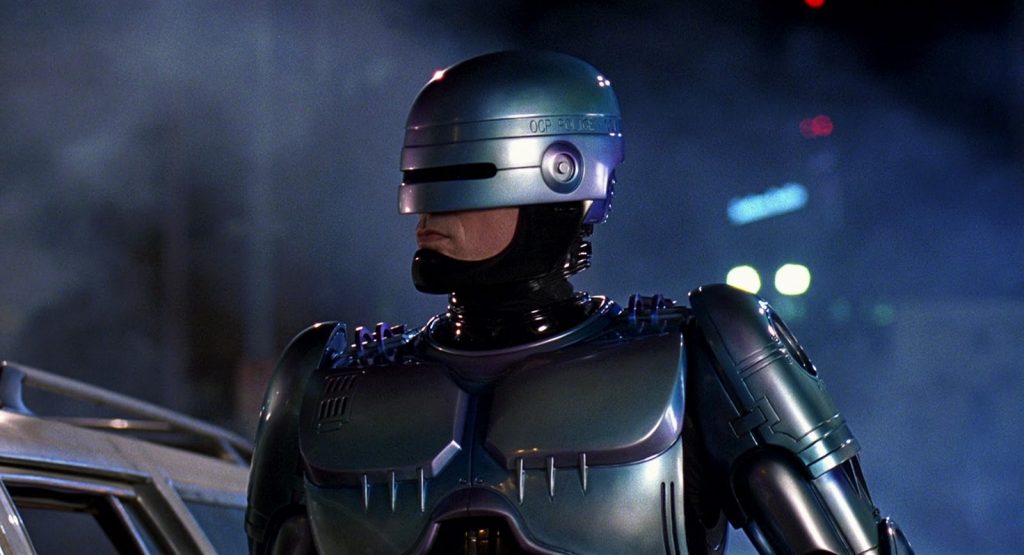
Little has been made about the production history of the film, subsequent DVD and Blu-Ray releases have been bereft of special features and it’s only in recent years, with the renewed interest in all things RoboCop, that the tale of 2’s beleaguered production has surfaced in any great detail. On paper it should have been a success. Most of the surviving principle cast returned, The Dark Knight Returns scribe Frank Miller was on writing duty and Irvin Kershner was handed the task of directing it. Yes, that’s the same Irvin Kershner that directed a little known 1980 sci-fi film called The Empire Strikes Back. You may have heard of it. It’s possibly the greatest sequel ever made.
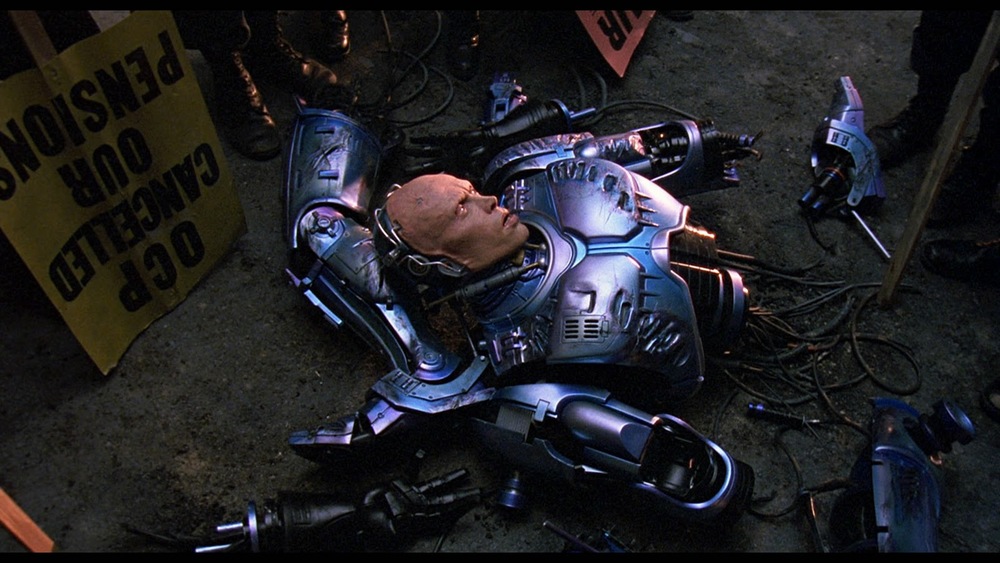
So, what went wrong? Firstly, as much as Kershner can be credited for his sterling work on Empire, by 1990 he hadn’t directed a theatrical film since 1983’s much maligned unofficial James Bond movie, Never Say Never Again. Verhoeven’s vision was such a defining factor of the original that his absence here was very much apparent. Kershner himself had many issues to contend with. A script that underwent numerous re-writes following studio intervention was the main problem. When principle shooting began they still hadn’t finalised the script. The finished article was, by Kershner’s own admission, a mess and the major cause of the movie’s failure to capture the magic formula of the original. Ideas are suggested but never satisfactorily followed through. One such aspect is Murphy’s relationship with his wife which is set up early on in the film only to be unceremoniously dumped presumably to make room for more action.
The whole movie has a rushed feel, perhaps not surprising given Orion’s desperate financial situation at the time, they’d been eager to put out a sequel ever since the first film became a hit. The studio set a release date of June 22nd 1990 long before shooting had even commenced and a workable script was finished. Orion desperately needed a quick hit to aid their financial woes and weren’t concerned with artistic integrity.
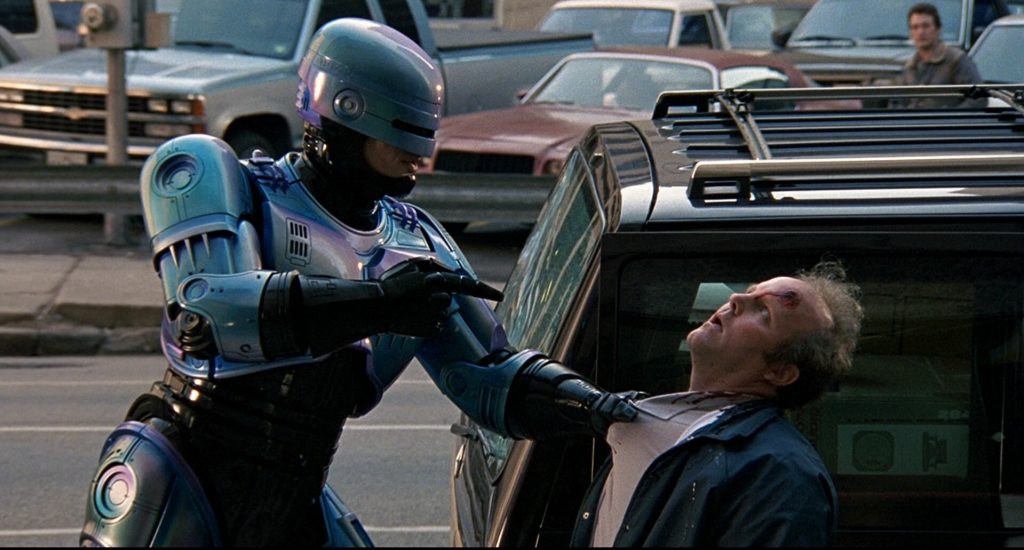
The performances across the board, even from Weller himself, are sub-par at best. Gone is the regained humanity of Murphy by the end of film one. At the beginning of film two his voice and general mannerisms are far more robotic than when we last saw him. It’s as if the film consists entirely of first takes, with unrefined, unnatural and clumsy delivery of poorly written dialogue by all involved. Nancy Allen, so strong in the first film, delivers most of her lines as if she’s reading them from a cue card. Also not to my liking is an almost camp edge to the humour, a poor mimicry of the vicious, ultra-black comedy of the original.
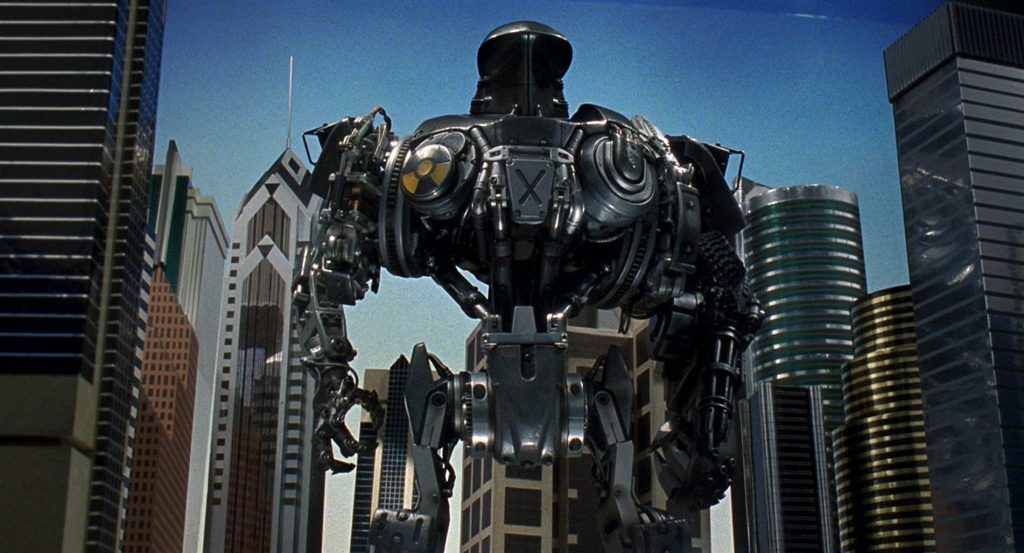
Several poor plot choices stick out like a sore pneumatic digit; Gabriel Damon’s foul mouthed 12 year old villain Hob – they really thought that idea would work? And the whole concept of putting the brain of a drug dealing psychopath into Murphy’s replacement… isn’t this film supposed to be called Robo-COP 2? Tom Noonan’s frankly bizarre turn as drug lord Cain pales in comparison to the wonderful Kurtwood Smith and Ronny Cox from the first film. Cain, the quietly spoken hippy, is redolent of the film’s off-kilter tone. And since when did The Old Man and Johnson become scenery chewing villains in place of the admittedly greedy but still fairly decent characters they‘re portrayed as in the first film?
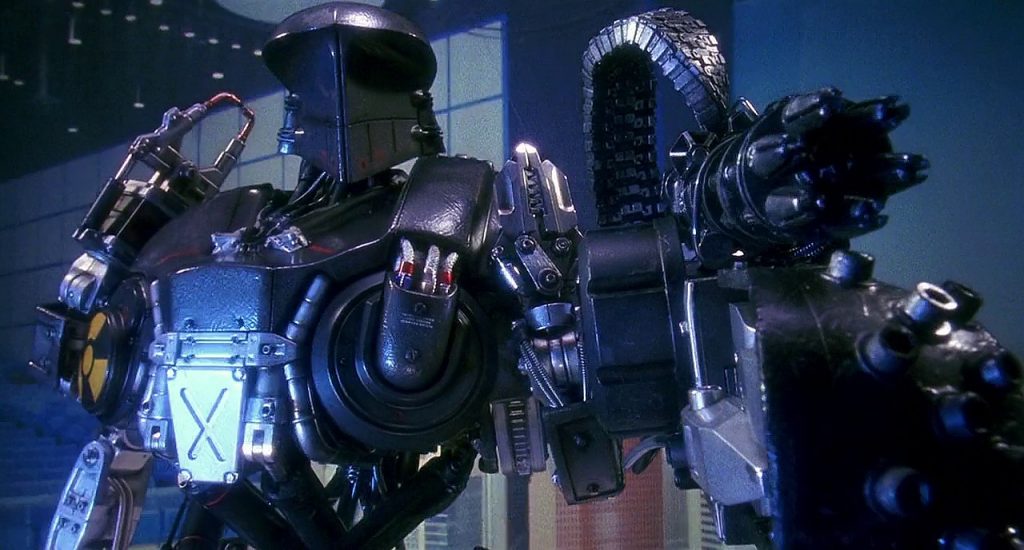
Another factor which defies logic is the decision to drop composer Basil Poledouris in favour of, wait for it… Leonard Rosenman. Yes, you know, that renowned film composer famed for Star Trek IV: The Voyage Home and… um, not much else. His score for RoboCop 2 is almost a carbon copy of his Trek score, campy and ill-fitting, an insult to Poledouris’ rousing yet melodic work on the first film.

It’s not all bad and there are some promising elements and moments of well staged action and some great Go-Motion effects by Phil Tippett, but the good stuff is a bit too few and far between considering the strong pedigree of the original. For me RoboCop 2 is certainly better than the 2014 remake. At least it’s aimed at adults as it should be and is at least justified in its existence as a sequel to the original was inevitable. Either way, the RoboCop franchise is best considered as solely consisting of one film and this ill-conceived sequel is proof that the first film really was a case of catching lightning in a bottle.
Film ’89 Verdict – 5/10

